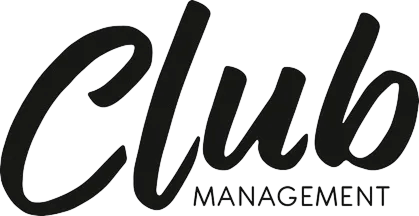In the past year, more than 9000 charities, health organisations and community groups received an average grant of $9,219 in funding support under the NSW ClubGRANTS scheme.
In total, $121 million in financial support for community services, projects and programs was provided in the year to 31 August 2023 — exceeding the mandatory contribution required under the ClubGRANTS Guidelines by over $50 million.
ClubGRANTS is one of Australia’s largest and most established grant programs and is a partnership between ClubsNSW and the NSW Government. Rebecca Riant, CEO of ClubNSW, said ClubGRANTS has now delivered more than $1.5 billion in community benefits since its inception in 1998.
“ClubGRANTS is a fantastic program that drives support for community organisations and activities within a club’s local area and support for the core purpose for which clubs were established,” stated Riant.
“Every year, several thousand applications are received from charities that provide a range of vital services, including domestic violence crisis care, homeless shelters, veterans’ support and mental health programs. Without ClubGRANTS, many of these groups would not be able to provide the breadth of essential services that need continuous resourcing and financial certainty.”
Some of the biggest local community beneficiaries in the last 12 months include:
• Learning Links: Supports children with learning difficulties and disabilities — $1,653,474
• Oakdene House Foundation: Established to assist sufferers of addiction including problem gambling and alcoholism — $553,554
• Ted Noffs Foundation: Australia’s largest provider of drug treatment for young people — $525,450
• Little Wings: Provides medical flights and transfers for sick kids in regional areas — $486,867
• Disaster Relief Australia (DRA): A veteran-led disaster relief organisation — $72,562. Since 2018, the club industry has donated close to $1 million to DRA.
Category 2 reinvestment
On top of partnering with local community groups and charities, the ClubGrants Guidelines also ensure that funds are reinvested in facilities and services that benefit both club members and the broader community – know as Category 2 grants.
“That investment makes participation in sport, recreation and other activities more accessible and affordable for hundreds of thousands of community members — from junior footballers and netballers through to veterans and retired bowlers and golfers,” stated Riant.
“Of course, ClubGRANTS are just one way that the industry makes their communities better places to live. Clubs also support more than 75,000 jobs, contribute nearly 500,000 volunteer hours annually and put on over 10,000 free entertainment events each year. I could not be prouder to represent this industry.”
Category 2 recipients this year included:
• Bulldogs Rugby League Club Ltd — $4.5 million (of which $892,000 was eligible for a tax rebate)
• South Sydney District Junior Rugby Football — $2.2 million (of which $383,000 was eligible for a tax rebate)
• Brighton Lakes Recreation and Golf Club — $1.7 million (of which $43,000 was eligible for a tax rebate)
• St Johns Park Bowling Club — $805,000 (of which $482,000 was eligible for a tax rebate)
Community benefit
Of the $121m distributed throughout New South Wales this year, $58m went to community sporting endeavours. Rugby League communities, at the grassroots level, were one such recipient, with Don Hammond, CEO of Leagues Clubs Australia illuminating how vital the funds have been to communities in need.
“ClubGRANTS have had a significant impact on Grassroots Rugby League, the Clontarf Foundation, and Wheelchair Rugby League by providing essential funding and support. For Grassroots Rugby League, ClubGRANTS have helped improve infrastructure, training facilities, and equipment, fostering the development of young players and the overall growth of the sport at the community level.
“ClubGRANTS have enabled the Clontarf Foundation to expand its reach and make a positive impact on the lives of Indigenous young people through Rugby League and helped enhance the quality of life for individuals with disabilities, enabling them to participate in sports and promoting inclusivity within the Rugby League community,” Hammond explained.
Across categories, regional community programs received $32m this year via ClubGRANTS. Little Wings, which provides free air and ground transport for sick kids and their families from regional remote locations, received close to half a million dollars this year. The organisation has estimated that without the help of the ClubGRANTS program, their services would be reduced by more than 50 per cent.
“The club industry is filling vital gaps in our healthcare system via programs such as Little Wings. Moreover, they have become the unspoken lifeline that so many charities need to help sustain and stabilise services across NSW. It would have disastrous impacts on communities near and far if the ClubGRANTS system was abolished, further disadvantaging vulnerable people and forcing the collapse of many not-for-profit services in our state,” suggested Little Wings CEO Clare Pearson.
A full list of all ClubGRANTS recipients for the year to 31 August 2023 can be viewed here.
The ClubGRANTS guidelines are determined by the NSW Government and overseen by Liquor and Gaming NSW. The scheme has not had a formal review since 2013, so a new review is taking place, lead by Liquor & Gaming NSW, in consultation with The Cabinet Office and NSW Treasury. The review is welcomed by ClubsNSW.

